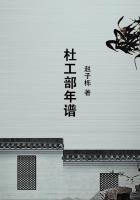WILLIAM Fothergill Cooke was born near Ealing on May 4, 1806, and was a son of Dr. William Cooke, a doctor of medicine, and professor of anatomy at the University of Durham. The boy was educated at a school in Durham, and at the University of Edinburgh. In 1826 he joined the East India Army, and held several staff appointments. While in the Madras Native Infantry, he returned home on furlough, owing to ill-health, and afterwards relinquished this connection. In 1833-4 he studied anatomy and physiology in Paris, acquiring great skill at modelling dissections in coloured wax.
In the summer of 1835, while touring in Switzerland with his parents, he visited Heidelberg, and was induced by Professor Tiedeman, director of the Anatomical Institute, to return there and continue his wax modelling. He lodged at 97, Stockstrasse, in the house of a brewer, and modelled in a room nearly opposite. Some of his models have been preserved in the Anatomical Museum at Heidelberg. In March 1836, hearing accidentally from Mr. J. W. R. Hoppner, a son of Lord Byron's friend, that the Professor of Natural Philosophy in the University, Geheime Hofrath Moncke. had a model of Baron Schilling's telegraph, Cooke went to see it on March 6, in the Professor's lecture room, an upper storey of an old convent of Dominicans, where he also lived.
Struck by what he witnessed, he abandoned his medical studies, and resolved to apply all his energies to the introduction of the telegraph.
Within three weeks he had made, partly at Heidelberg, and partly at Frankfort, his first galvanometer, or needle telegraph. It consisted of three magnetic needles surrounded by multiplying coils, and actuated by three separate circuits of six wires. The movements of the needles under the action of the currents produced twenty-six different signals corresponding to the letters of the alphabet.
'Whilst completing the model of my original plan,' he wrote to his mother on April 5, 'others on entirely fresh systems suggested themselves, and I have at length succeeded in combining the UTILE of each, but the mechanism requires a more delicate hand than mine to execute, or rather instruments which I do not possess. These I can readily have made for me in London, and by the aid of a lathe I shall he able to adapt the several parts, which I shall have made by different mechanicians for secrecy's sake. Should I succeed, it may be the means of putting some hundreds of pounds in my pocket. As it is a subject on which I was profoundly ignorant, until my attention was casually attracted to it the other day, I do not know what others may have done in the same way; this can best be learned in London.'
The 'fresh systems' referred to was his 'mechanical' telegraph, consisting of two letter dials, working synchronously, and on which particular letters of the message were indicated by means of an electro-magnet and detent. Before the end of March he invented the clock-work alarm, in which an electro-magnet attracted an armature of soft iron, and thus withdrew a detent, allowing the works to strike the alarm.
This idea was suggested to him on March 17, 1836, while reading Mrs.
Mary Somerville's 'Connexion of the Physical Sciences,' in travelling from Heidelberg to Frankfort.
Cooke arrived in London on April 22, and wrote a pamphlet setting forth his plans for the establishment of an electric telegraph; but it was never published. According to his own account he also gave considerable attention to the escapement principle, or step by step movement, afterwards perfected by Wheatstone. While busy in preparing his apparatus for exhibition, part of which was made by a clock-maker in Clerkenwell, he consulted Faraday about the construction of electro-magnets, The philosopher saw his apparatus and expressed his opinion that the 'principle was perfectly correct,' and that the 'instrument appears perfectly adapted to its intended uses.' Nevertheless he was not very sanguine of making it a commercial success. 'The electro-magnetic telegraph shall not ruin me,' he wrote to his mother, 'but will hardly make my fortune.' He was desirous of taking a partner in the work, and went to Liverpool in order to meet some gentleman likely to forward his views, and endeavoured to get his instrument adopted on the incline of the tunnel at Liverpool; but it gave sixty signals, and was deemed too complicated by the directors. Soon after his return to London, by the end of April, he had two simpler instruments in working order. All these preparations had already cost him nearly four hundred pounds.
On February 27, Cooke, being dissatisfied with an experiment on a mile of wire, consulted Faraday and Dr. Roget as to the action of a current on an electro-magnet in circuit with a long wire. Dr. Roget sent him to Wheatstone, where to his dismay he learned that Wheatstone had been employed for months on the construction of a telegraph for practical purposes. The end of their conferences was that a partnership in the undertaking was proposed by Cooke, and ultimately accepted by Wheatstone. The latter had given Cooke fresh hopes of success when he was worn and discouraged. 'In truth,' he wrote in a letter, after his first interview with the Professor, 'I had given the telegraph up since Thursday evening, and only sought proofs of my being right to do so ere announcing it to you. This day's enquiries partly revives my hopes, but I am far from sanguine. The scientific men know little or nothing absolute on the subject: Wheatstone is the only man near the mark.'















